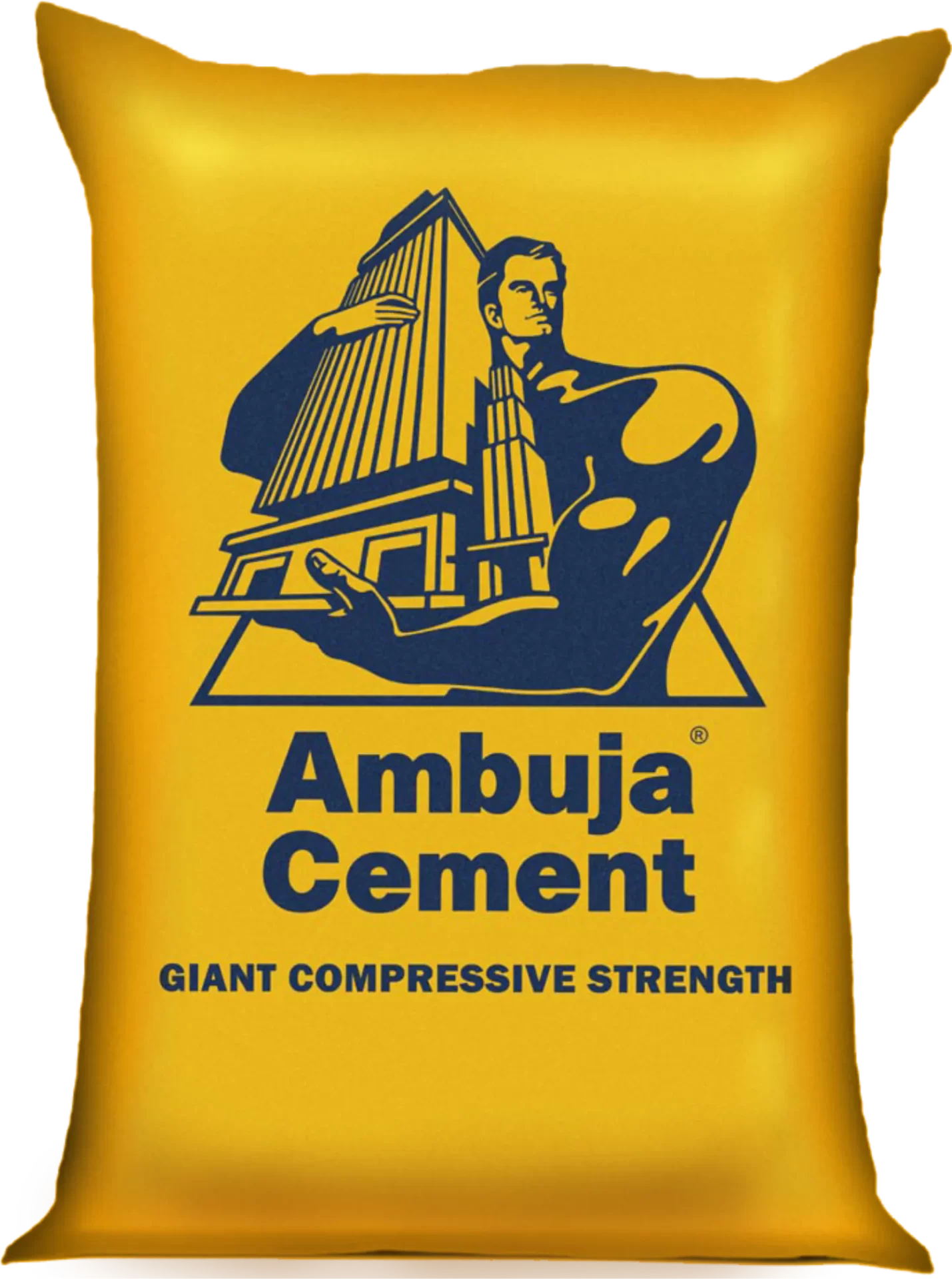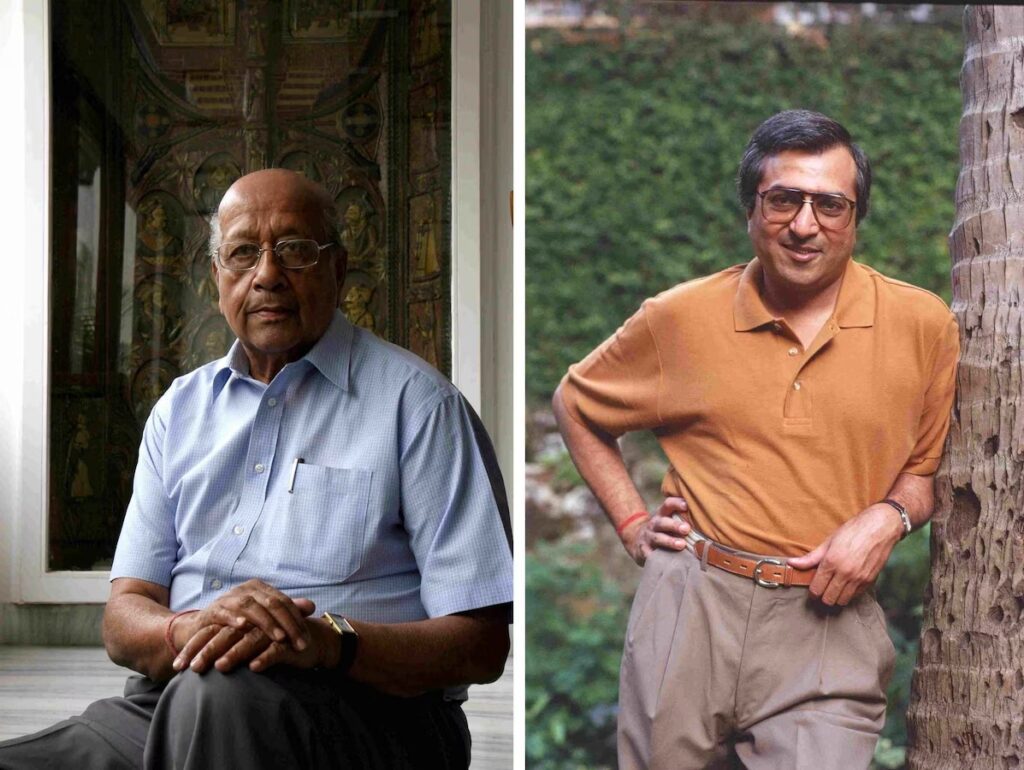Unforgotten Brands – Gujarat Ambuja Cements

Ambuja Cement has been offering innovative, high-quality cement solutions to the construction industry for decades.
For over a century and a half, the Neotia family has played a pivotal role in Kolkata’s commercial life. Their ancestors moved here from Rajasthan in the 1890s because they were drawn to the city’s thriving business community. Since then, they have made Kolkata their permanent home, raising many generations here.
Neotias
In the middle of the 1950s, Suresh and Vinod Neotia started their business careers. Their maternal grandfather, Janki Prasad Poddar, a partner in the illustrious company “Tarachand Ghanshyamdas,” adopted their elder brother, Bimal Kumar Poddar. During the period of British rule in India, this was likely one of the earliest registered partnership businesses run entirely by Indians. It was a trade company with locations from Shanghai in China to Karachi in Pakistan. The company initially focused on banking and insurance but eventually expanded into the petroleum industry as a Burma Shell franchisee.
After “Tarachand Ghanshyamdas” broke up in the mid-1950s, the Neotia brothers Shri Bimal Kumar Poddar, Suresh Neotia, and Vinod Neotia formed “Radhakrishna Bimal Kumar.” It had multiple locations in the states of Uttar Pradesh (UP), Bihar (Bihar), and West Bengal (West Bengal), and was the largest Burma Shell franchisee in the nation.
Suresh Neotia and Vinod Neotia took over the family company when their father, Bimal Kumar Poddar, passed away in 1968. With them at the helm, “Radhakrishna Bimal Kumar” branched out into new markets, such as the cement, fertiliser, and petroleum product trading industries. In the early 1990s, it had already reached a gross turnover of Rs. 500 crores, and since then, it has grown consistently.
A textile factory in West Bengal and very lucrative collieries run by the Neotia family ran in tandem with these businesses until they were nationalised. In addition, they advocated for “Macmet India Limited,” an engineering business that provided software and contracting services.

Starting Up
With the help of Narotam Sekhsaria, brother of Bimla Poddar (wife of Bimal Kumar Poddar), the two brothers used their foresight and years of industry expertise to launch “Gujarat Ambuja Cements Limited (GACL)” in the 1980s.
In 1983, two merchants with no background in cement or production took a huge risk. Narotam Sekhsaria and Suresh Neotia, both visionaries, put their money into a cutting-edge cement factory in Gujarat. They couldn’t have known at the time that they were laying the groundwork for what would become Ambuja Cement, India’s largest cement producer.
Narotam Sekhsaria
Even though he knew nothing about making cement, Sekhsaria launched a cement firm in India before liberalisation. After meeting NN Pai, he decided on Gujarat rather than Uttar Pradesh. Gujarat Industrial Investment Corporation’s HK Khan was a key player in the project’s ultimate success. It is a prevalent Marwari custom, and Sekhsaria’s adoption by his great uncle fits that mould. Khan backed Nirma’s creator, Karsanbhai Patel, adding to Gujarat’s list of successful industries beyond cement.
Sekhsaria was initially a prosperous cotton merchant, but he says something was missing around halfway through his life.
Mr. Sekhsaria always attempted to act ethically and truthfully. Ambuja’s method of selecting dealers is one such instance. The old method demanded a huge monetary payment from them, often between INR 20 and 30 lakhs to secure a dealership. But Ambuja accepted a small sum, with the stipulation that the dealer pay in the allotted period.
Mr. Sekhsaria also recommended that Ambuja bring on 25 new sales agents. These agents would be dispersed across Gujarat and would keep in contact with local retailers and wholesalers to learn more about local demand. He suggested that they don ties as the pharmaceutical salespeople wore, explaining that in India, men who dress formally are given greater respect. Mr. Sekhsaria always questioned the status quo in business and found innovative solutions to improve productivity. Credit cycles in the sector typically last 30 days, but Ambuja has cut that down to only 7 days. As a result, the dealer was able to collect payments from clients sooner, which boosted the economy as a whole.
Naming
The founders of Ambuja Cement took their company’s name, Ambuja Cement, after the Hindu deity Mata Ambuj. Divine guidance like this resonated with people all around the nation, turning the brand into a symbol of power and excellence. Ambuja Cement Plant has a strong link to the local culture and values, as seen by the widespread presence of Mata Ambuj idols throughout the communities they have built.
Path to Growth
The expansion of Ambuja Cement has been nothing short of spectacular. The firm expanded from a single plant with an annual capacity of 700,000 tonnes in 1986 to five integrated cement manufacturing facilities and eight cement grinding units with a combined 29.65 million tonnes of cement production capacity in 2016. The firm has set the standard for its field via its incessant drive for innovation and improvement.
Ambuja Cements became a member of the illustrious Holcim group of Switzerland in 2005 when it merged with ACC Limited, another major Indian cement manufacturer. This merger bolstered the company’s international profile and opened doors to new opportunities.
Lafarge SA and Holcim Limited amalgamated in 2015 as equal partners to become LafargeHolcim, the undisputed world leader in construction materials.
In May 2022, the Adani group acquired the 70mt in assets held by Ambuja and ACC.
Reference
https://en.wikipedia.org/wiki/Narotam_Sekhsaria
https://www.utimf.com/impactful-books/the-ambuja-story
https://harpercollins.co.in/blog/book-excerpts/the-ambuja-story-excerpt/



